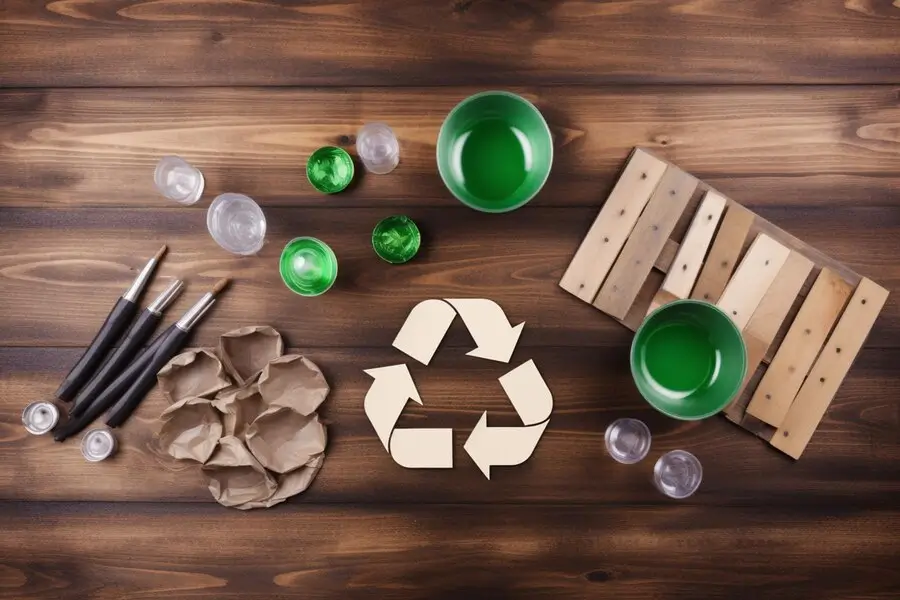Table of Contents
Key Takeaways
- Explore practical methods for sustainable waste management in daily life.
- Recognize the significance of waste reduction and its effects on the environment.
- Learn about innovative products and strategies that contribute to waste reduction.
Introduction to Sustainable Waste Management
Sustainable waste management is a strategy that reduces, reuses, and recycles waste to conserve resources and protect the environment. It has gained popularity due to its significant impact on the planet’s health and fosters a culture of responsibility. In today’s rapidly advancing world, sustainable waste management is crucial as individuals and communities seek practical solutions for eco-friendly living without complicating daily routines. Enter the practical utility of a vertical waste compactor, a technology designed to significantly reduce the volume of waste produced in households and businesses. Reducing waste is becoming increasingly important for a cleaner planet and a sustainable future. Individuals and organizations are seeking methods to minimize waste and enhance recycling efforts. Embracing technologies and practices that streamline waste management processes is a responsible step toward conserving our planet for future generations.
The Importance of Reducing Waste
Reducing waste is not merely a choice; decreasing landfill use and carbon emissions is necessary. Based on information from the Environmental Protection Agency, sustainable materials management plays a fundamental role in conserving natural resources and reducing environmental pollution. All facets of society must participate in trash reduction since improperly managed garbage can cause pollution and accelerate climate change.
Practical Everyday Solutions
Simple actions can lead to significant change. From composting kitchen scraps to choosing reusable products over single-use plastics, every small effort dramatically reduces waste. Families can start by assessing their consumption habits, opting for sustainable alternatives, and engaging in practices such as composting and recycling. Additionally, understanding labels and being mindful of consumers can reduce unnecessary waste. Sharing inspiring stories of individuals who have drastically minimized their waste footprint can motivate others to adopt similar practices, showing that lifestyle changes, however minor, can collectively lead to a substantial societal impact.
Smart Appliances and Innovations
The advent of technology presents exciting opportunities in waste management. Smart appliances, such as waste compactors and advanced recycling systems, have changed how households and businesses manage waste. These innovations offer a way to automate and streamline processes, reducing the frequency of waste disposal and encouraging more efficient recycling. The intelligent bin tech, for example, uses sensors to detect when it’s complete, prompting timely disposal and reducing overflow. Embracing these technologies not only eases daily chores but also introduces a modern, practical approach to achieving sustainability at home and in the office.
Community Involvement and Initiatives
Communities worldwide recognize the power of collective effort in driving sustainable waste management. Local initiatives and programs focused on waste reduction are multiplying globally. Communities have pioneered creative projects like public compost sites, educational workshops on sustainability, and city-led waste separation challenges. Such community-driven efforts showcase collective efforts’ significant impact, encouraging more people to participate in eco-friendly practices. When neighbors join forces for joint causes, like neighborhood recycling programs, they can dramatically increase local recycling rates and put their community on the map as a leader in sustainability.
Also Read: Property Management: Simplify Renting and Maintenance Tasks
Influences of Government Policies
Government policies shape waste management practices by setting standards and expectations. Regulations and incentives are instrumental in moving the needle on sustainability efforts, fostering an environment where sustainable practices are prioritized. By introducing and reinforcing rules on waste sorting, recycling, and packaging, governments encourage businesses and individuals to engage in more environmentally friendly practices. Recent policy adjustments, as shown here, demonstrate how coordinated governmental action can facilitate substantial advancements in waste reduction nationally and globally.
Challenges and Overcoming Barriers
While the push for sustainable waste management continues to gain ground, several challenges persist. Common obstacles include limited access to recycling facilities, lack of public knowledge on proper waste management, and inadequate funding for sustainability programs. Tackling these challenges requires a multifaceted approach: increased investment in infrastructure, public education campaigns, and incentives for sustainable business practices. By addressing these barriers through innovation and collaboration, communities and organizations can drive the systemic change needed to ensure sustainable waste management becomes a norm rather than a goal.
Future of Waste Management
Looking ahead, the future of waste management is poised for groundbreaking advancements. As technology continues to evolve alongside increasing environmental awareness, comprehensive and innovative strategies are emerging to address waste challenges. This includes developing biodegradable materials, advancements in waste-to-energy technologies, and even more sophisticated recycling methods. Society’s commitment to sustainable living pushes boundaries, enabling solutions that were once part of futurist projections to become part of today’s reality. The ongoing contributions from all sectors are primed to propel society towards a zero-waste future, promising a healthier planet for generations to come.

